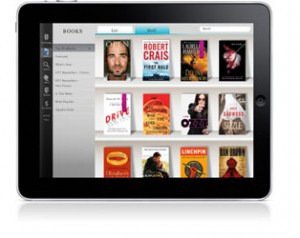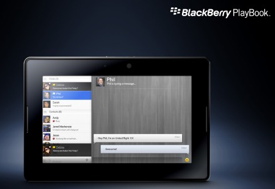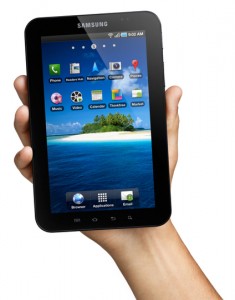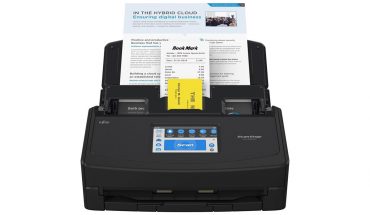
By Gadjo Cardenas Sevilla
Flashback to 2009 and consumer electronics and technology was all about netbooks. Cheap, useful and cool, netbooks offered users “just enough” computing power and size to get by even with so-so battery life and limited hardware specifications. They were cheap, they worked and everybody wanted one.
Sure, there were slate computers, tablet PCs and even costly UMPCs available then but these were poorly realized concepts of ultraportable computing that were all form and sorely lacking in terms of function. TabletPCs were priced at the high end of the spectrum and ran a version of Windows that required pen input in order to work.
When the iPad came early this year it changed everything. Apple’s 9’7 inch device brought with it the promise of truly untethered mobile computing without the need for a physical keyboard or even a full-blown operating system. It did email, it managed the web and even tiptoed around the Flash animation and video web-standard causing a shift in the way people watched video online to such an extent that YouTube even re-processed their videos to fit the iPad’s requirements. Talk about a game changer.

BlackBerry's PlayBook is slated for an early 2011 release but will that be too little, too late?
The iPad challenged the eBook reader market, it slayed the netbook market and slowly but surely began encroaching in the notebook space. Apple’s app store dominance, the availability of music and movies plus the staggering support of the developer community made the iPad the new platform to beat. But where was the competition?

Is Samsung's Galaxy Tab is the Android-flavoured foil to Apple's dominant iPad?
Not until late September was there any news of a viable competitor to the iPad. RIM (Research in Motion) was the unlikely challenger. The BlackBerry maker unveiled the oddly named PlayBook, a 7’ inch tablet that is powered by a 1GHz dual-core processor, can multitask and manages true 1080p vide playback. RIM even managed to get Adobe behind its effort and as a result the PlayBook can manage Flash 10.1 as well as run Adobe Air.
Will the PlayBook emerge as a true competitor or as the token accessory for BlackBerry fanboys and fangirls? Its hard to tell since no pricing nor availability information has yet been released for the device that’s expected to ship “early 2011.” But without a healthy app store selection behind it as well as developer interest, it is doubtful that the PlayBook can make a dent in the iPad’s market share which some analysts have said has a two-year lead.
Another chink in the PlayBook’s armour is the idea that you need to “pair” the PlayBook to an existing BlackBerry device or account in order for it to work. Non BlackBerry users who just want a tablet may be confused.
The iPad works because it is a standalone device which doesn’t need to be tied in to another Apple product or service, so it will be interesting to see how the PlayBook plays out in this respect.
On the Android front, Samsung is the one manufacturer that’s taking the fight to Apple with its sleek Samsung Galaxy Tab. Another 7-inch tablet with the latest Android OS, the Galaxy Tab will be widely distributed across different countries and mobile carriers and hopes to match the iPad as a computing and entertainment device.
The Galaxy Tab and the PlayBook’s size seem to address one of the biggest complaints about the iPad, that it is too big and heavy to be held with one hand. It is certainly a problem, especially for prolonged periods of use. The biggest indicator of the newcomers competitive viability, aside from specs and features, is price. Any new tablets or slates need to undercut the iPad to be even remotely interesting to consumers.
Microsoft, once a proponent of tablet computing and ultra mobile devices missed out on the opportunity to capitalize on the slate market early on. Its CEO Steve Ballmer recently let it be known that we can expect a Windows Mobile powered iPad competitor by Christmas.
This is where companies like Dell and HP come in. Dell is expected to launch a slew of Android enabled tablets in 4’inch, 7’inch and 10’inch form factors next year. With the variation of sizes are expected to be aggressive pricing schemes that will put tablets within the reach of the mass market.
HP is also said to be readying its own tablets, these running Palm’s WebOS cloud-enhanced OS, HP has the experience of developing tablets. Compaq, which HP acquired some time ago, was a pioneer in the TabletPC market so this expertise will no doubt carry over.
Those are just the big players, expect Lenovo, MSI, Asus and Toshiba to field their own tablet devices using any variety of operating systems with Android being the most likely choice. No one really likes Linux on a tablet so something with a thriving ecosystem of apps is ripe for this market.
Is there a tablet in your future? Does the prospect of ultra light, ultra mobile computing excite you? Well, you will soon see an explosion of choices in terms of price, size and operating systems.




Samsung seems to want North American to use tethering of some sort with their Galaxy Tab and smartphones. You won’t be able to make a phone call with the Tab. (Not so with the European market.) Samsung blames the carriers.